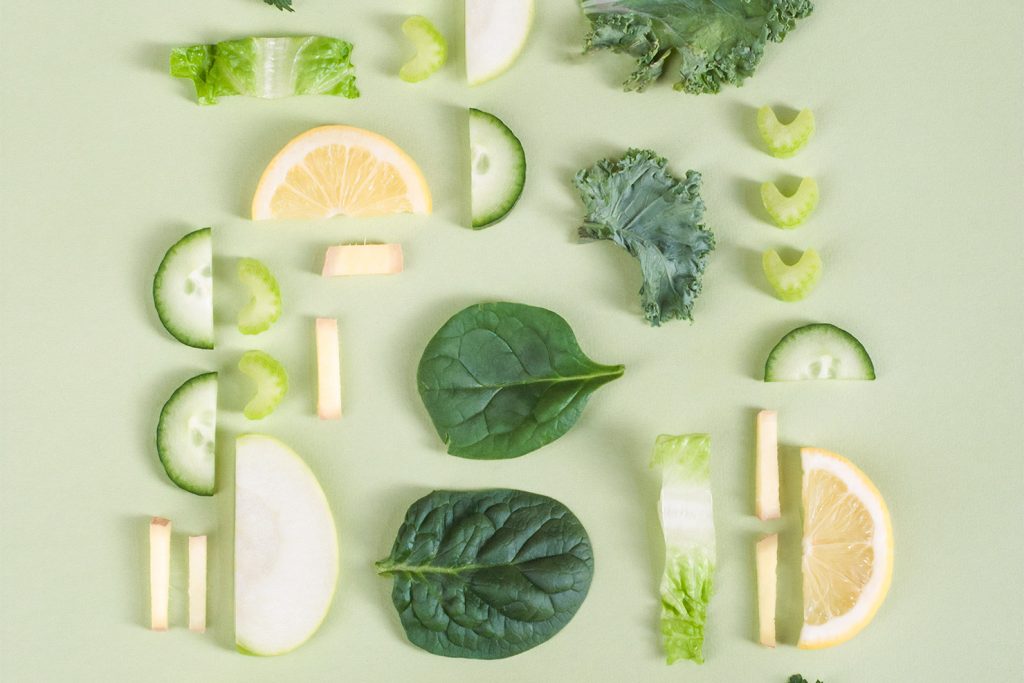
Eating seasonally is second nature in the summer time with farmer’s markets and fresh produce everywhere. Eating seasonally in the winter season is quite a different story though. Some people (depending on their area) don’t even think to eat seasonally in the winter because they assume that local produce doesn’t grow during the colder months.
Believe it or not, some produce can thrive in cooler weather conditions. Below are 5 winter foods you should try to incorporate into your diet this season. Choosing seasonal produce is a great way to make sure you’re getting the most delicious and nutrient dense foods available! Plus it ensures you’re getting a variety of foods in throughout the year.
Kale
One cup of chopped kale has only 8 calories, 1 gram of protein, 1 gram of carbs, and 0 grams of fat. That very same cup of kale has 125% of the Vitamin K you need in a day (%DV), 68% DV vitamin A, and 27% DV copper.
Vitamin K is an extremely important nutrient that supports the body in a variety of ways. For example, vitamin K is essential when it comes to blood clotting. Vitamin K deficiencies are actually pretty rare. That being said, getting enough vitamin K is important to your bone and heart health.
Swiss Chard
One cup of chopped swiss chard has only 7 calories, 1 gram of carbs, and less than 1 gram of protein and fat. That very same cup of kale has 332% of the Vitamin K you need in a day (%DV), 94% DV vitamin A, and 14% DV vitamin C.
Vitamin A also supports the body in a variety of ways. It’s particularly important when it comes to eye health and immune system function. If you’ve ever seen swiss chard in the store, you’ll have noticed the beautiful colors. These colors come from betalain, an antioxidant that can reduce your risk of developing heart disease.
Collard Greens
One cup of chopped collard greens has only 11 calories, 1 gram of protein, and less than 1 gram of carbs and fat. That very same cup of kale has 175% of the Vitamin K you need in a day (%DV), 77% DV vitamin A, 17% DV vitamin C, and 8% DV calcium.
Because collard greens have both vitamin K and calcium, this makes it a great option if you’re looking to support your bone health. Vitamin K supports bone health by promoting the formation of new bone and preventing the loss of calcium from the bone. Calcium is the main mineral found in our bones and it’s crucial for bone health. It’s important to eat calcium-rich foods every day and throughout the day to ensure maximum absorption.
Winter Greens Pesto [Recipe]
Below is a recipe for a tried-and-true favorite with a twist: pesto with winter greens.
Ingredients
- 1/4 cup pine nuts
- 2 cups firmly packed chopped raw winter greens (kale, Swiss chard, collard greens, etc.)
- 3 tablespoons grated hard Parmesan cheese
- 3 tablespoons extra-virgin olive oil
- Juice from one lemon
- 1-3 cloves of garlic
- Salt and pepper to taste
Instructions
- Place all of the ingredients (except pine nuts) into a food processor and blend until smooth and well incorporated.
- Add the pine nuts to the pesto mixture and pulse until pine nuts are roughly chopped.
